Essential Oil Cleaning Hacks: Unlock the power of nature and transform your cleaning routine! Are you tired of harsh chemicals and artificial fragrances in your cleaning products? I know I was! For centuries, cultures around the globe have harnessed the potent properties of essential oils for everything from aromatherapy to medicinal purposes. Now, we’re bringing that ancient wisdom into the modern home with a collection of DIY cleaning hacks that are not only effective but also smell amazing.
Imagine a home filled with the invigorating scents of lemon, lavender, or eucalyptus, all while knowing you’re using safe, natural ingredients. That’s the magic of essential oil cleaning hacks. In this article, I’m going to share my favorite recipes and techniques for creating your own all-purpose cleaners, disinfecting sprays, and even laundry boosters.
Why should you embrace these DIY tricks? Because they’re cost-effective, eco-friendly, and customizable to your specific needs and preferences. Plus, you’ll have the peace of mind knowing exactly what’s going into the products you use around your family and pets. Let’s ditch the toxins and embrace the power of essential oils for a cleaner, healthier home!
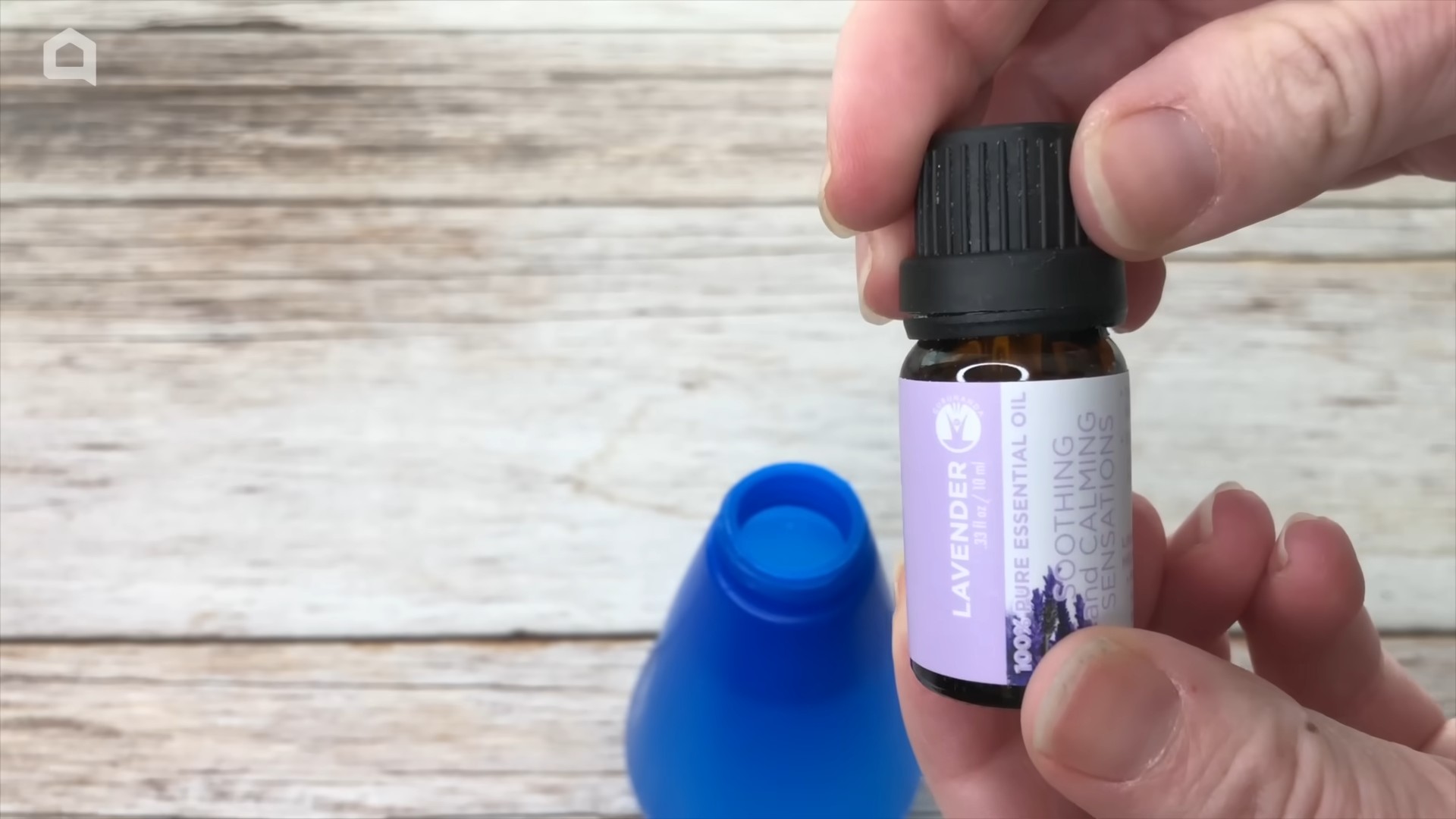
DIY Essential Oil Cleaning Hacks: A Naturally Fresh Home
Hey there, fellow cleaning enthusiasts! I’m always on the lookout for ways to ditch harsh chemicals and embrace more natural solutions for keeping my home sparkling. And what better way to do that than with the power of essential oils? Not only do they smell amazing, but many possess potent antibacterial, antiviral, and antifungal properties, making them fantastic cleaning agents. Let’s dive into some of my favorite DIY essential oil cleaning hacks!
General Guidelines for Using Essential Oils in Cleaning
Before we jump into specific recipes, let’s cover some essential ground rules:
* Quality Matters: Invest in high-quality, pure essential oils. Look for oils that are labeled as “100% pure” and ideally, from a reputable brand. This ensures you’re getting the therapeutic benefits and not just a synthetic fragrance.
* Dilution is Key: Essential oils are highly concentrated and can be irritating to the skin and surfaces if used undiluted. Always dilute them with a carrier substance like water, vinegar, or a carrier oil (like olive oil or coconut oil).
* Test First: Before applying any essential oil cleaning solution to a large area, test it on a small, inconspicuous spot to ensure it doesn’t damage or discolor the surface.
* Storage: Store your essential oil cleaning solutions in dark glass bottles. Essential oils can degrade when exposed to light, so dark glass helps preserve their potency.
* Safety First: Keep essential oils out of reach of children and pets. Some essential oils are toxic to animals, so do your research before using them around your furry friends. Also, avoid direct contact with eyes and mucous membranes.
All-Purpose Cleaner
This is my go-to cleaner for almost everything! It’s effective, smells fantastic, and is super easy to make.
Ingredients:
* 16 oz Spray Bottle
* 1 cup White Vinegar
* 1 cup Water (distilled is best)
* 15-20 drops Essential Oil (I love lemon, lavender, tea tree, or a blend!)
Instructions:
1. Combine Ingredients: In your spray bottle, combine the white vinegar and water.
2. Add Essential Oils: Add your chosen essential oils to the mixture.
3. Shake Well: Secure the spray nozzle and shake the bottle vigorously to combine all the ingredients.
4. Spray and Wipe: Spray the solution onto the surface you want to clean and wipe with a clean cloth.
Tips and Tricks:
* For extra cleaning power, add a tablespoon of baking soda to the mixture. Be careful, as it will fizz!
* Experiment with different essential oil blends to find your favorite scent.
* This cleaner works great on countertops, sinks, appliances, and even floors (just be sure to test it in an inconspicuous area first).
Glass and Window Cleaner
Say goodbye to streaks with this simple and effective glass cleaner!
Ingredients:
* 16 oz Spray Bottle
* 1/4 cup White Vinegar
* 2 cups Water (distilled is best)
* 5-10 drops Lemon Essential Oil (optional, but adds a nice shine and scent)
Instructions:
1. Combine Ingredients: In your spray bottle, combine the white vinegar and water.
2. Add Essential Oil (Optional): Add the lemon essential oil, if using.
3. Shake Well: Secure the spray nozzle and shake the bottle well to combine.
4. Spray and Wipe: Spray the solution onto your windows or mirrors and wipe with a clean microfiber cloth.
Tips and Tricks:
* Use a clean, dry microfiber cloth for the best streak-free results.
* Avoid cleaning windows in direct sunlight, as the solution may dry too quickly and leave streaks.
* You can also use this cleaner on stainless steel appliances for a sparkling shine.
Toilet Bowl Cleaner
Keep your toilet bowl fresh and clean with this natural alternative.
Ingredients:
* 1/2 cup Baking Soda
* 10-15 drops Tea Tree Essential Oil
* 1/2 cup White Vinegar
Instructions:
1. Sprinkle Baking Soda: Sprinkle the baking soda into the toilet bowl.
2. Add Essential Oil: Add the tea tree essential oil to the baking soda.
3. Pour in Vinegar: Slowly pour the white vinegar into the bowl. It will fizz!
4. Let it Sit: Let the mixture sit for at least 15-20 minutes.
5. Scrub and Flush: Scrub the bowl with a toilet brush and flush.
Tips and Tricks:
* Tea tree oil is a powerful antibacterial and antifungal agent, making it perfect for cleaning the toilet.
* For extra cleaning power, let the mixture sit overnight before scrubbing.
* You can also add a few drops of lemon essential oil for a fresh scent.
Wood Floor Cleaner
Keep your wood floors clean and protected with this gentle cleaner.
Ingredients:
* Bucket
* 1 gallon Warm Water
* 1/4 cup White Vinegar
* 10-15 drops Essential Oil (I recommend cedarwood, pine, or orange)
Instructions:
1. Combine Ingredients: In the bucket, combine the warm water, white vinegar, and essential oil.
2. Mop the Floor: Dip a mop into the solution and wring out the excess water.
3. Mop the Floor: Mop the floor, rinsing the mop frequently in clean water.
4. Dry the Floor: Allow the floor to air dry or use a clean, dry cloth to dry it.
Tips and Tricks:
* Always wring out the mop thoroughly to avoid over-wetting the floor.
* Test the solution in an inconspicuous area first to ensure it doesn’t damage the finish.
* Avoid using harsh chemicals or abrasive cleaners on wood floors, as they can damage the finish.
Laundry Booster
Give your laundry a boost of freshness and cleaning power with essential oils.
Ingredients:
* 1/2 cup Baking Soda
* 10-15 drops Essential Oil (Lavender, lemon, or tea tree are great choices)
Instructions:
1. Combine Ingredients: In a small bowl, combine the baking soda and essential oil.
2. Add to Laundry: Add the mixture to your washing machine along with your regular laundry detergent.
Tips and Tricks:
* Baking soda helps to deodorize and brighten clothes, while essential oils add a fresh scent.
* Use this booster for all types of laundry, including whites, colors, and delicates.
* For heavily soiled clothes, you can also add a cup of white vinegar to the wash cycle.
Disinfecting Spray
Need a quick and easy way to disinfect surfaces? This spray is your answer!
Ingredients:
* 16 oz Spray Bottle
* 1 cup Water (distilled is best)
* 2 tablespoons Witch Hazel or Rubbing Alcohol (acts as a dispersant)
* 20-30 drops Essential Oils (Tea tree, eucalyptus, clove, cinnamon, and rosemary are known for their antibacterial and antiviral properties. A blend of these is ideal!)
Instructions:
1. Combine Ingredients: In your spray bottle, combine the water and witch hazel or rubbing alcohol.
2. Add Essential Oils: Add your chosen essential oils to the mixture.
3. Shake Well: Secure the spray nozzle and shake the bottle vigorously to combine all the ingredients.
4. Spray and Let Sit: Spray the solution onto the surface you want to disinfect and let it sit for at least 30 seconds before wiping with a clean cloth.
Tips and Tricks:
* This spray is great for disinfecting countertops, doorknobs, light switches, and other high-touch surfaces.
* The combination of tea tree, eucalyptus, clove, cinnamon, and rosemary essential oils is known as “Thieves” blend and is highly effective at killing germs.
* Be sure to shake the bottle well before each use, as the essential oils may separate from the water.
DIY Furniture Polish
Revive your wooden furniture with this natural polish.
Ingredients:
* 1/4 cup Olive Oil
* 1 tablespoon White Vinegar or Lemon Juice
* 10 drops Essential Oil (Cedarwood, orange, or sandalwood work well)
* Soft Cloth
Instructions:
1. Combine Ingredients: In a small bowl, combine the olive oil, white vinegar or lemon juice, and essential oil.
2. Apply to Furniture: Dip a soft cloth into the mixture and wring out any excess.
3. Polish: Apply the polish to your wooden furniture in a circular motion.
4. Buff: Buff the furniture with a clean, dry cloth to remove any excess polish and reveal a beautiful shine.
Tips and Tricks
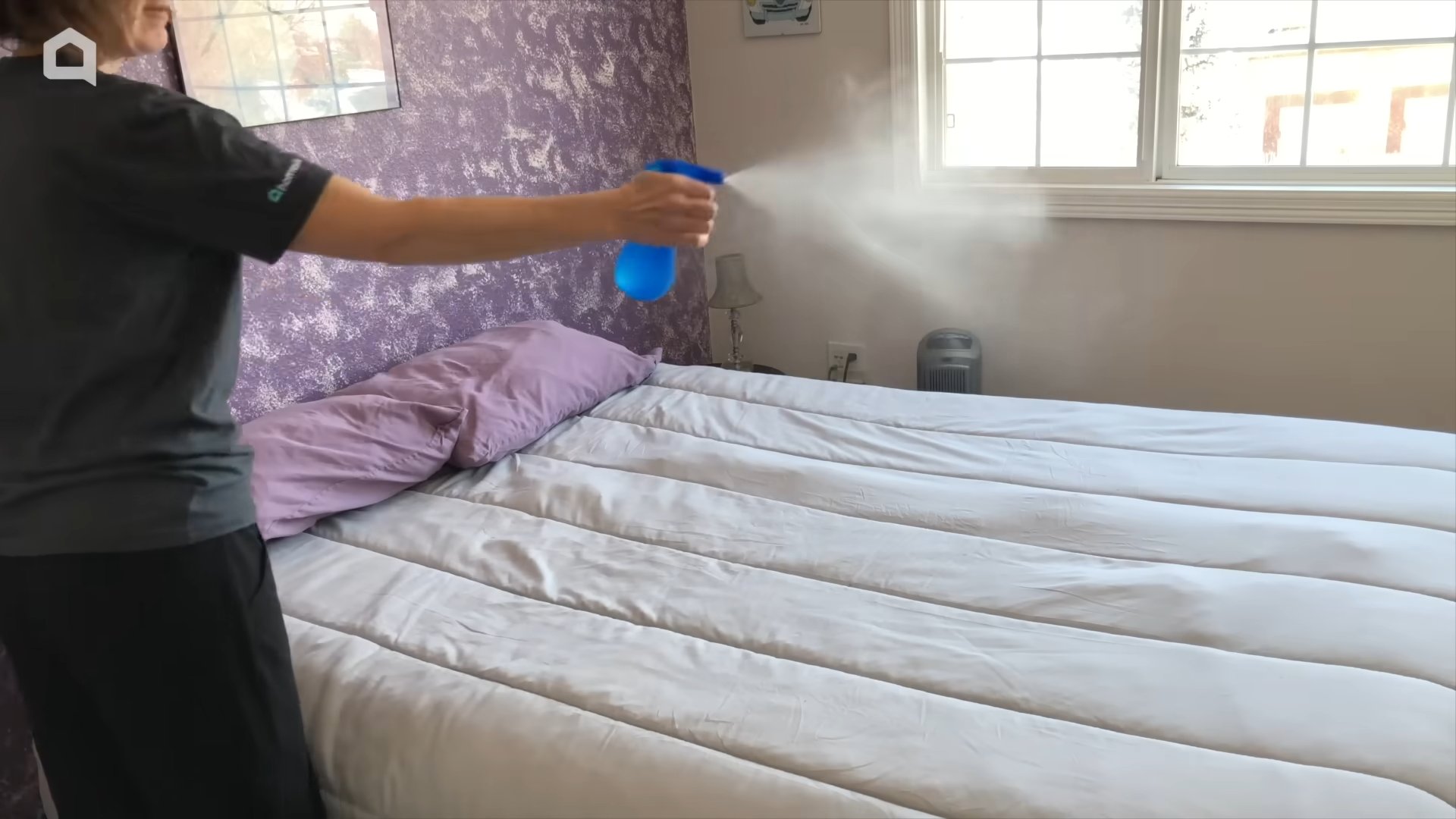
Conclusion
So, there you have it! Ditching harsh chemicals and embracing the power of nature with these essential oil cleaning hacks is not just a trend; it’s a smart, sustainable, and incredibly effective way to keep your home sparkling. We’ve explored how these aromatic wonders can transform your cleaning routine, from banishing bathroom grime to freshening up your laundry. But why is this DIY approach a must-try?
Firstly, it’s about control. You know exactly what’s going into your cleaning solutions. No more deciphering long lists of unpronounceable ingredients or worrying about hidden toxins. You’re in charge, crafting blends that are safe for your family, your pets, and the environment. Secondly, it’s about cost-effectiveness. A few bottles of versatile essential oils can replace a whole cabinet full of specialized cleaning products, saving you money in the long run. And finally, it’s about the sheer joy of creating something yourself. There’s a unique satisfaction in knowing you’ve made a powerful cleaning solution from scratch, infused with your favorite scents.
The benefits extend beyond just a clean home. Essential oils offer therapeutic properties that can uplift your mood, reduce stress, and even boost your immune system. Imagine cleaning your kitchen and simultaneously enjoying the invigorating aroma of lemon and rosemary, or tackling the bathroom with the calming scent of lavender and tea tree. It’s a multi-sensory experience that transforms a chore into a moment of self-care.
Ready to take your essential oil cleaning to the next level? Consider these variations:
* Citrus Power Boost: For extra degreasing power in the kitchen, add a tablespoon of white vinegar to your citrus-based cleaning solutions. The vinegar will help cut through grease and grime, leaving your surfaces sparkling clean.
* Herbal Infusion: Infuse your cleaning solutions with fresh herbs like rosemary, thyme, or mint for an added boost of fragrance and antibacterial properties. Simply steep the herbs in hot water for a few hours, then strain and add the infused water to your cleaning mixture.
* DIY Disinfectant Wipes: Create your own reusable disinfectant wipes by soaking microfiber cloths in a solution of water, vinegar, and your favorite antibacterial essential oils like tea tree, eucalyptus, or clove. Store the wipes in an airtight container and use them to quickly clean and disinfect surfaces.
* Essential Oil Furniture Polish: Combine olive oil, lemon essential oil, and a touch of vinegar for a natural furniture polish that will nourish and protect your wood surfaces.
We’ve armed you with the knowledge and inspiration to embark on your essential oil cleaning journey. Now, it’s your turn to experiment, create, and discover the magic of these natural wonders. We encourage you to try these DIY tricks and share your experiences with us. What are your favorite essential oil blends for cleaning? What challenges did you encounter, and how did you overcome them? Your insights will help others discover the joy and effectiveness of essential oil cleaning. Let’s build a community of eco-conscious cleaners, one sparkling home at a time! Don’t forget to share your favorite essential oil cleaning hacks on social media using #EssentialOilCleaning and tag us! We can’t wait to see what you create!
FAQ
What are the best essential oils for cleaning?
The best essential oils for cleaning possess potent antibacterial, antiviral, and antifungal properties, making them effective against a wide range of household germs. Some of the most popular and effective choices include:
* Tea Tree Oil: Known for its powerful antiseptic and antifungal properties, tea tree oil is excellent for cleaning bathrooms, kitchens, and other areas prone to mold and mildew.
* Lemon Oil: With its bright, citrusy scent and degreasing properties, lemon oil is ideal for cleaning kitchen surfaces, removing sticky residue, and polishing furniture.
* Lavender Oil: While known for its calming aroma, lavender oil also possesses antibacterial and antiviral properties, making it a great choice for cleaning bedrooms, nurseries, and other areas where a gentle and relaxing scent is desired.
* Eucalyptus Oil: With its strong, medicinal scent and antiseptic properties, eucalyptus oil is effective for cleaning bathrooms, floors, and other areas where you want to eliminate germs and freshen the air.
* Peppermint Oil: Peppermint oil has antibacterial and antifungal properties and can also deter pests like ants and spiders. It’s great for cleaning kitchens and bathrooms.
* Clove Oil: Clove oil is a powerful antiseptic and antifungal agent, making it effective for disinfecting surfaces and eliminating mold and mildew.
* Rosemary Oil: Rosemary oil has antibacterial and antiviral properties and a refreshing, herbaceous scent. It’s great for cleaning kitchens and bathrooms.
Are essential oils safe to use around pets and children?
While essential oils offer numerous benefits, it’s crucial to exercise caution when using them around pets and children. Some essential oils can be toxic to animals, especially cats, and can cause skin irritation or respiratory problems in young children. Always dilute essential oils properly before use, and avoid using them in areas where pets or children spend a lot of time. It’s also a good idea to consult with a veterinarian or pediatrician before using essential oils around pets or children with pre-existing health conditions. Some oils to avoid around pets include tea tree, pennyroyal, wintergreen, and pine. Always research the specific oil before using it around your furry friends.
How do I properly dilute essential oils for cleaning?
Dilution is key when using essential oils for cleaning. Undiluted essential oils can be irritating to the skin and respiratory system. A general guideline is to use a 1-3% dilution for cleaning solutions. This means adding 6-18 drops of essential oil per ounce of carrier liquid (water, vinegar, etc.). For example, in a 16-ounce spray bottle, you would add approximately 96-288 drops of essential oil. Start with a lower concentration and increase as needed, depending on the strength of the oil and your personal preference. Always use glass or PET plastic bottles for storing essential oil cleaning solutions, as essential oils can degrade other types of plastic.
Can I use essential oils on all surfaces?
While essential oils are generally safe for most surfaces, it’s always a good idea to test them in an inconspicuous area first, especially on delicate or porous materials like wood, leather, or painted surfaces. Some essential oils, like lemon oil, can be corrosive to certain plastics or finishes. Avoid using essential oils on surfaces that are sensitive to acids, such as marble or granite. When in doubt, dilute the essential oil further or use a gentler cleaning solution.
How long will my DIY essential oil cleaning solutions last?
DIY essential oil cleaning solutions typically have a shelf life of 1-3 months, depending on the ingredients used. Solutions containing water should be used within a few weeks to prevent bacterial growth. Solutions containing vinegar or alcohol will last longer due to their preservative properties. Store your cleaning solutions in a cool, dark place to prevent the essential oils from degrading. Always label your bottles with the date and ingredients to ensure freshness and safety. If the solution changes color, develops an odor, or shows signs of contamination, discard it immediately.
What if I don’t like the smell of a particular essential oil?
The beauty of DIY essential oil cleaning is that you can customize the scents to your liking. If you don’t enjoy the smell of a particular essential oil, simply substitute it with another oil that has similar cleaning properties and a scent that you find more appealing. Experiment with different blends and combinations to create your own signature cleaning scents. You can also add a few drops of a complementary essential oil to mask the scent of an oil you don’t particularly like. For example, if you find tea tree oil too medicinal, try adding a few drops of lavender or lemon oil to soften the scent.


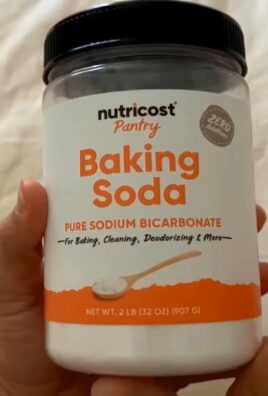
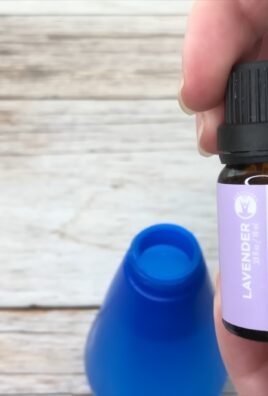
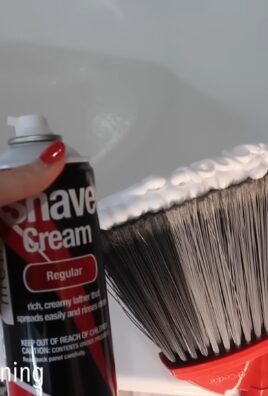
Leave a Comment